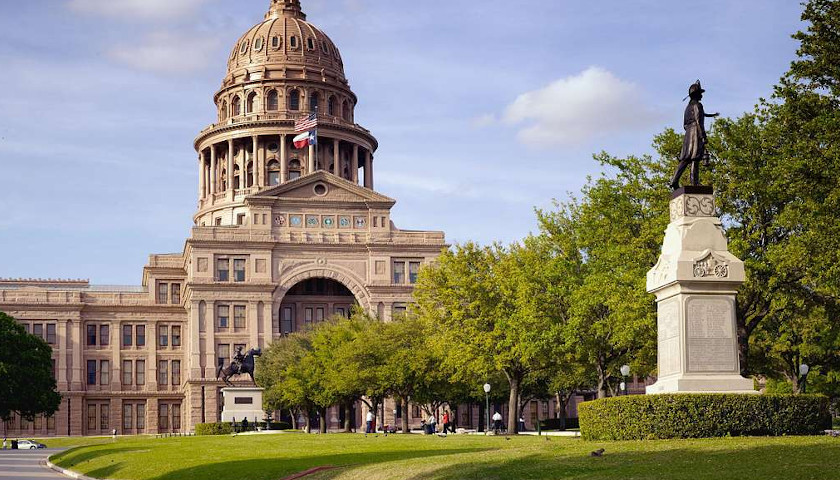by Bethany Blankley
Presidential electors met across the U.S. Monday to cast their vote for president and vice president. In Austin, while Texas electors cast their vote for President Donald Trump, they also approved a resolution to “condemn the lack of action by the United State Supreme Court” for refusing to hear a lawsuit brought against four states by Texas Attorney General Ken Paxton.
Mark Ramsey, of Spring and Texas’ 10th Congressional District, introduced “Defending the Integrity of Our Constitution, Our Elections and These United States.” The resolution calls on the members of the Electoral College for the state legislatures of Pennsylvania, Wisconsin, Georgia and Michigan to “convene and appoint their electors in accordance with the true constitutional vote of the people, or if undeterminable by appointing their electors directly.” It passed by a vote of 34 to 4.
As Texans cast their votes, Republican electors in five states (Arizona, Georgia, Pennsylvania, Michigan and Nevada) cast procedural votes for President Donald Trump and Vice President Mike Pence, while their states formally appointed Democratic electors who voted for Democrat Joe Biden and Sen. Kamala Harris, D-California.
Arizona’s Republican electors voted for Trump and Pence, according to the state’s Republican party.
Senator-elect Kelly Townsend published a three-page joint resolution of the 57th Legislature to the 116th Congress on Twitter, which “calls on Congress to accept the alternative slate of electors and abstain from accepting the Biden electoral votes until investigations are completed.” It is signed by 22 legislators and eight legislators-elect.
GOP electors in Georgia also voted for Trump and Pence. David Shafer, chairman of the state’s Republican Party, said they did so because the “President’s lawsuit contesting the Georgia election is still pending.”
“The Republican nominees for Presidential Elector met today at noon at the State Capitol today and cast their votes for President and Vice President,” Shafer tweeted Monday.
“Had we not met today and cast our votes, the President’s pending election contest would have been effectively mooted. Our action today preserves his rights under Georgia law.”
In Michigan, two separate slates of electors were cast: 16 for Trump and 16 for Biden.
Meshawn Maddock, Michigan Republican at-large national elector, said in a statement, “Sending more than one slate of electors is not unheard of. It’s our duty to the people of Michigan and to the U.S. Constitution to send another slate of electors if the election is in controversy or dispute – and clearly it is.”
The Pennsylvania GOP said in a news release that electors met in Harrisburg to “cast a conditional vote” for Trump and Pence “at the request of the Trump campaign.”
They also tweeted: “BREAKING: Republican electors cast procedural vote, seek to preserve Trump campaign legal challenge.” They did so as Democratic electors cast their Electoral College votes for Biden and Harris.
The Pennsylvania GOP cite the 1960 presidential election between Richard Nixon and John F. Kennedy as the reason behind their procedural vote.
“We took this procedural vote to preserve any legal claims that may be preserved going forward,” Pennsylvania Trump Campaign Chairman Bernie Comfort in a statement.
Nevadan Republican electors also voted for Trump and Pence. They tweeted: “History made today in Carson City, Nevada, as @McDonaldNV leads our electors in casting Nevada’s 6 electoral votes for the winner of Nevada, Donald Trump and Mike Pence!”
White House adviser Stephen Miller told Fox News that alternate groups of electors were being chosen in several states in case Trump wins his legal challenges.
“The only date in the Constitution is Jan. 20. So we have more than enough time to right the wrong of this fraudulent election result and certify Donald Trump as the winner of the election,” Miller said, referring to Inauguration Day.
In these five states, dueling electoral votes could be submitted to Congress by state legislatures that compete with those certified by the governor. The last time dueling electors were submitted during a presidential election was in 1876.
– – –
Bethany Blankley is a contributor to The Center Square.




